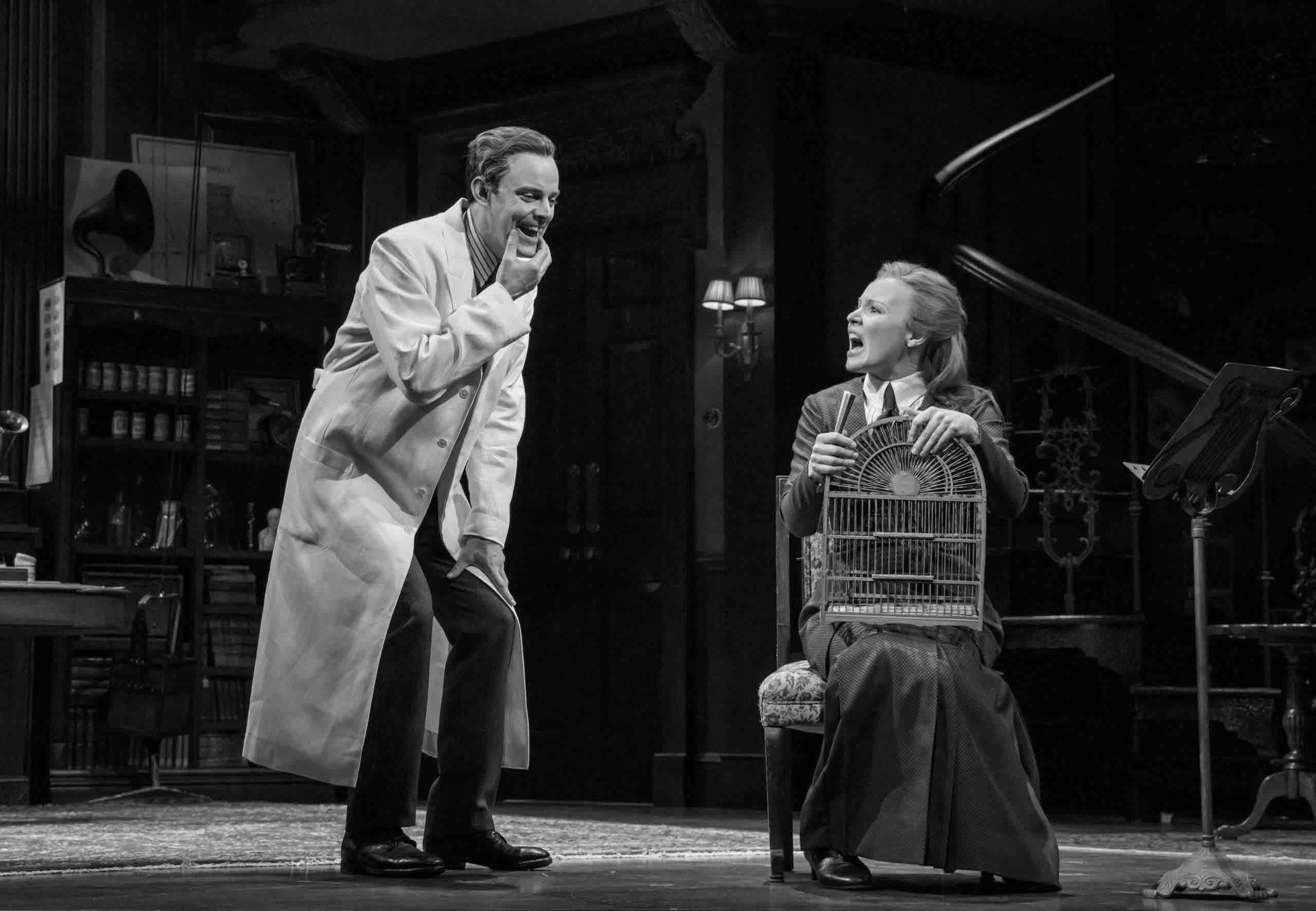Broadway Elitism: Just When Are Our Standards Too High?

If you’ve been following the Broadway community lately (and I assume you have, since you’re right here reading this little article), you will have heard the news that Lauren Ambrose is not only leaving the newest Broadway revival of My Fair Lady, but also that she is being replaced by none other than the talented soprano, Laura Benanti. This is great news for Laura Benanti and her fans; after all, Benanti has been outspoken about the fact that Eliza Doolittle is a dream role of hers, and I’m certain she has the voice and comedic chops to do a great job. And, judging by the warm reaction that this news has received from the theatre community, I take it that many theatregoers are as ecstatic as Benanti herself is.
Upon joining the cast, Benanti is going to be taking over a seven show week, continuing the schedule Lauren Ambrose recently began during her own run. It hasn’t escaped my notice that no one seems to have much of a problem with the fact that Benanti will be requiring an alternate to go on once a week in her place, but when it was announced that Ambrose would need an alternate, theatre fans on Twitter, Tumblr, and Broadway World erupted into a mess of outrage, demanding to know why Lauren Ambrose would dare disrespect the Broadway way of going onstage eight times a week and opt for such “unprofessional” behavior. And when comparing this reaction to the silence facing news of Benanti continuing Ambrose’s trend, one has to wonder why this difference in feedback exists at all.
You see, unlike Benanti, who has multiple musical credits to her name, Ambrose is a relative newcomer to the world of musical theatre. Despite possessing a gorgeous voice and leading her own band, Ambrose has mostly chosen to stick to film and television for her acting gigs; in fact, My Fair Lady is the first stage musical on her resume. The notion of her playing Eliza Doolittle was so alien to theatre fans that, when the casting was first announced, the overwhelming response was a collective question mark. Why, they asked, was a TV star cast in something so difficult and iconic like My Fair Lady? Surely Ambrose doesn’t have the vocal chops for such a part, right? Why was she picked among the “more deserving” Broadway sopranos with theatre credits?
I remember Lauren Ambrose’s casting being met with vitriol on Twitter, particularly from Laura Benanti’s fans. Benanti, they reasoned, should have gotten the part instead, because she has more stage experience under her belt, she has the voice for it, and Eliza happens to be her dream role. Fans took to Twitter to mock the choice, announcing that they would not be seeing the show with this kind of actress as the lead. Benanti, in a show of unprofessionalism, publicly liked a few of the Tweets trashing Ambrose, despite the fact that none of us had ever heard Ambrose sing the score before. In short: people were mad, not only because their favorite actress wasn’t given a part, but also because said part was given to a TV star instead. Benanti not being granted the chance to bless us all with her gifts was bad enough, but what made it worse was the fact that someone so lowly would be playing Eliza Doolittle in her place. A TV star! Theatre fans sneered at the idea.
Although we know Laura Benanti is more than capable of playing the part, why should Lauren Ambrose’s past acting credits declare whether or not she is just as capable of doing Eliza justice? Before My Fair Lady began previews, no one besides the cast, crew, and Bartlett Sher had heard the way Ambrose sounded singing Eliza’s songs. No one besides the cast, crew, and Bartlett Sher had seen the way Ambrose emoted Eliza’s lines. No one besides the cast, crew, and Bartlett Sher had listened to the way Ambrose handled Eliza’s accents. Not you, not me, not Laura Benanti. How did we know whether or not she could handle the part before ever giving her a chance to prove Sher’s casting decision a good one?
Unsurprisingly, because Sher has a keen eye and ear for actors, Ambrose went on to win glowing reviews from critics and, even, a Tony nomination for her performance. It turns out that there was no reason to fret Ambrose’s casting after all; despite her lack of musical theatre background, she proved herself to have the exact power Sher was looking for in his production. Despite her lack of musical theatre background, she had just as much talent as Laura Benanti, or even the rest of the circle of sopranos finding their places on Broadway, and that talent shone through brilliantly in her performance.
We should seriously reconsider judging an actor’s casting before they’ve given their first performance. If Sher had stuck with a strict, conventional list of actresses the Broadway community has deemed “deserving,” then we would have missed out on enjoying the gifts a newcomer like Lauren Ambrose brings to the game. Anyone who has the ability to do the job well should be given a chance if the director believes that person fits with the vision of the production, and a community as open-minded as the Broadway fanbase should be more accepting of this chance.
I wish Laura Benanti the best of luck in the role; I sincerely believe she will bring something fun and interesting to Eliza’s journey. I also hope to see Lauren Ambrose back on the stage someday, hopefully in a show that will highlight her gifts the way My Fair Lady so elegantly accomplished. Both women are talented enough to deserve a place on Broadway, regardless of who has the most prior experience.




